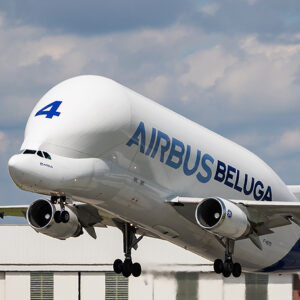The latest Airbus corporate moves might someday be a strategic case study on shooting oneself in the foot with new markets.
Imagine you are a business owner trying to break into a competitive new market. You offer similar products to the established competitors, but you think you have an edge on technology and relationships. So, you make the big push, knowing the sales cycle will take years and require building even more relationships while staying ahead of the competition’s technological advances.
In this situation, you would want to avoid angering decision-makers and influencers in the new market, right? Well, apparently Airbus decided to do the opposite – just as it is trying to convince U.S. policymakers, regulators, and influencers that it is the right pick for a billions-of-dollars military contract, the company opened its first non-European base…in China, America’s greatest geopolitical and economic foe, and possibly a future military opponent, as well.
But let’s step back for a moment and look at the details of Airbus’ attempted entry into the very lucrative U.S. defense market. In 2021, the Air Force announced it was opening up new contract bids for airborne refueling tankers to support military aircraft. Boeing’s KC-46 had secured the last contract, but that was nearing its endpoint and the KC-46 had run into a number of production problems – both huge openings for Airbus.
Airbus won the original contract in 2008 but saw that victory overturned in a legal challenge by Boeing. Undeterred, the company decided to compete for the new contract. It offered its A330 tanker option, a slightly more advanced version of Boeing’s KC-46. Airbus played the game right – establishing the right relationships with decision-makers and influencers, having a competitive product, and promising to make the A330s stateside instead of in Europe.
Unfortunately, months into the competitive bidding process, Airbus leadership committed an unforced error. In the middle of January 2022, Airbus poked a stick into the eye of its potential American market by opening its first manufacturing plant outside of Europe – in China, a nation known for stealing technologies and for opposing U.S. interests. And while Airbus hasn’t announced what craft will be built or renovated at the facility, the Chinese fleet has many of Airbus’ A-series craft, including A330s.
In one fell swoop, Airbus has broken the first rule of both medicine and business sales strategy: Do no harm. The manufacturer’s strong desire for greater market share in China may cost it entrance into the U.S. market because Airbus wanted to have its cake and eat it, too. Instead of providing healthy competition and creating more demand in the U.S., Airbus may have alienated the same policymakers, regulators, and influencers they were courting in the first place.
Airbus already had plenty of challenges to overcome to secure the new tanker contract. There is a new $340 million lawsuit by investors related to Airbus’ multi-national bribery scandal, which cost the company $4 billion in fines in 2020. There are Boeing’s new technological advances in the KC-46, no doubt inspired by Airbus’ competition. Airbus also lost billions of dollars in illegal European Union subsidies in 2019 – subsidies that were designed to hurt U.S. companies like Boeing.
As the potential client, Airbus’ unforced errors may have saved us – the customer – from joining with a bad partner. We have seen Airbus’s strategic decision-making in real time – decisions that seem designed to offend our national security sensibilities – the same national defense Airbus says it is trying to support with its tanker. If Airbus can’t get this basic business decision right, how can they be trusted with troops’ lives, and sensitive information and technology?
Americans may be split over many matters, but almost all of us are concerned about China. President Donald Trump was famously wary, Presidents Barack Obama and now Joe Biden have spoken on a “pivot to Asia” to contain China, and there’s even a movie made about The Coming War on China. All Airbus had to do was avoid poking a potential client in the eye by making it clear that China is a more desirable prospect than America. Now, they’ve made their entry into the U.S. military market that much more difficult.

